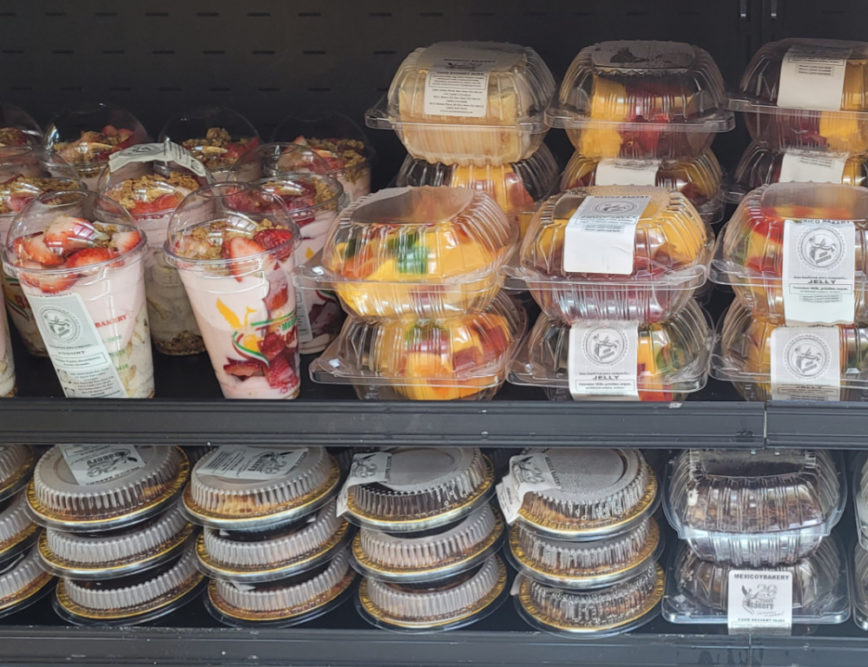
5 Reasons to Check and Build Your Business Credit
Let’s be honest. You probably have enough going on just managing daily operations, without thinking about checking business credit. Between managing staff, trying to get your products out the door, and keeping customers happy, credit monitoring might seem like just another task on an endless to-do list.
Still, a few minutes spent each month checking and monitoring your business credit can make running the rest of your business easier.
Here are five reasons to check and build business credit:
1. See How Other Companies View Your Business
Any company can check your business credit. That may include potential suppliers or clients, lenders, insurance companies, and even potential business partners.
Large retailers commonly check business credit before agreeing to carry products to help judge financial capability. While they want products to move quickly, they don’t want frequent stockouts because a bakery can’t keep up with demand.
Lenders and suppliers commonly use the information in credit reports and/or business credit scores to help them understand whether your business is likely to pay on time.
2. Look for Ways to Improve
Given that other companies may be checking your business credit, you’ll want to make sure yours is as strong as possible. The only way you’ll know whether your credit is correct—or needs work—is to check it yourself.
When reviewing your business credit, focus on these key areas:
Business information
Verify your business name, address, and industry classification are consistent across all credit bureaus.
NAICS codes are used to identify the industry for a small business. The NAICS manual is published by the Census Bureau, and you can download and search it for free at Census.gov. NAICS codes are not assigned by the government; you choose the code that best represents your businesses’ main source of revenue.
Here are the main codes under the Bakeries and Tortilla manufacturing sector:
- 31181 Bread and Bakery Product Manufacturing
- 311811 Retail Bakeries
- 311812 Commercial Bakeries
- 311813 Frozen Cakes, Pies, and Other Pastries Manufacturing
- 31182 Cookie, Cracker, and Pasta Manufacturing
- 311821 Cookie and Cracker Manufacturing
- 311824 Dry Pasta, Dough, and Flour Mixes Manufacturing from Purchased Flour
- 311830 Tortilla Manufacturing
However, there may be others that are more appropriate for your business; for example:
- 445291, Baked Goods Retailers for “retailing bakery products not for immediate consumption made elsewhere”; or
- 722515, Snack and Nonalcoholic Beverage Bars for “preparing and selling bakery products (e.g., cookies, pretzels) for immediate consumption.”
Your NAICS code may be requested when you apply for credit, and it may appear on your business credit reports. Check that yours is correct.
Payment history
An on-time payment history is the foundation of a business credit score. Without a positive payment history, your business may have low credit scores and appear more risky.
Review your payment history across all vendors and creditors. Unlike personal credit, where payment history falls into 30-day buckets, payments that are just a few days late can show up on business credit reports. Consider setting up automatic payments for regular expenses like delivery supplies. For seasonal expenses, such as bulk purchases for the holiday rush, plan payments carefully so you don’t accidentally pay late.
When you build a good payment history with a vendor, ask about extended payment terms. You may be able to stretch net-15 terms into net-30, or even longer.
Credit utilization
Here, the credit score analyzes how much of your available credit you're using. Not all credit scores include this factor, but when they do, keep in mind that high utilization during busy seasons can affect your credit scores. Getting a higher credit limit, or securing additional credit lines so you don’t have to max one out, may help.
Tradeline diversity
Accounts that report to business credit are referred to as “tradelines”. When business owners check their business credit for the first time, one of the biggest surprises is that they may not see all their accounts on their credit reports.
Unlike personal credit, where most lenders report to all three major consumer bureaus, it’s common for some vendors or lenders to report to select business credit bureaus, or not at all. The result can be lower credit scores due to a lack of payment history.
Aim for a mix of supplier accounts, business credit cards, and/or lines of credit.
Public records and legal filings
Check your credit reports for information filed with courts, including UCC filings, tax liens, or judgments. These details can significantly impact your business credit scores, and may also be seen as a red flag by future lenders, suppliers, or partners.
Credit inquiries and new accounts
Look at whether your credit reports have been checked recently. This also helps you understand which companies may be reporting your payment history.
Be aware, though, that business credit reports typically only report the type of account, but not the name of the company reporting. So, for example, your report may list “bankcard” but not the name of the business credit card issuer.
Regularly monitoring your business credit helps you spot small problems; hopefully before they turn into big problems.
Understand UCC Liens
UCC liens are particularly important, as lenders often turn down businesses with too many open UCC liens. These liens show when you've used equipment or inventory as collateral for loans or business financing. They can be filed against equipment, like ovens and mixers, or even against accounts receivable.
Companies who file UCC liens don’t always file a release promptly when the financing has been paid off. If they don’t, you will either need to contact the company that extended financing, or the court where the lien was filed, and request it be released.
Get Financing
Financing is the reason most business owners want to build business credit, and it makes sense. Strong business credit opens doors to better financing options with more favorable terms. When you need to upgrade your commercial kitchen equipment, expand your space, or take advantage of a bulk ingredient purchase, your credit profile can make the difference between approval or denial, as well as the rates and terms extended to your business.
Work on your business credit, so that when you need it—for emergencies or for opportunities—it helps your business get credit faster and easier.
Spot Fraudulent Activity
Business identity theft and fraud are growing. (It’s one of the main reasons lenders and suppliers check credit. They want to avoid fraudulent credit applications.)
Monitoring your business credit helps you quickly spot suspicious activities, such as new inquiries or credit accounts you don’t recognize. This lets you check them out to make sure your business isn’t the latest target of business identity theft.
Regular credit monitoring isn't just about watching numbers – it's about protecting and growing your bakery business. Make it part of your regular financial reviews to help ensure your business has the financial foundation it needs to thrive in today's competitive market.
About the Author

Gerri Detweiler has several decades of experience guiding individuals through the confusing world of credit, and has earned a reputation as a reliable and independent source on personal and small business credit. Today, Gerri serves as Education Consultant for Nav, a financial health platform for small businesses owners to build and manage their business and personal credit, track cash flow patterns, and understand their financing options before they apply.